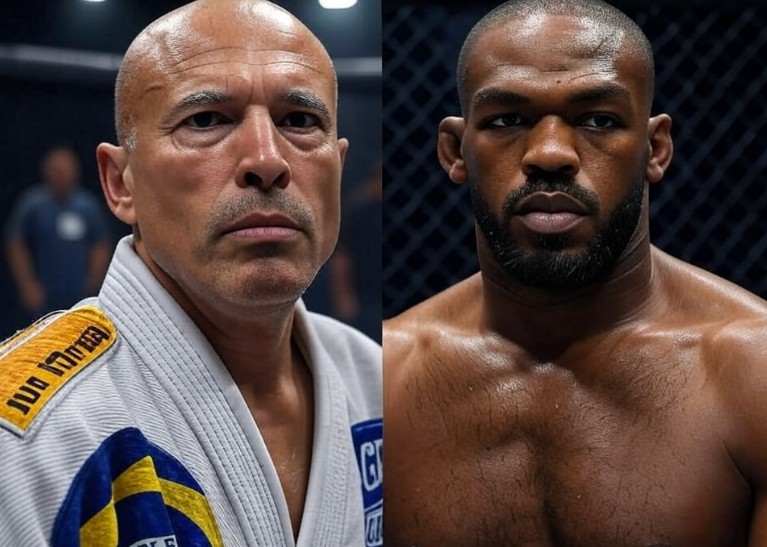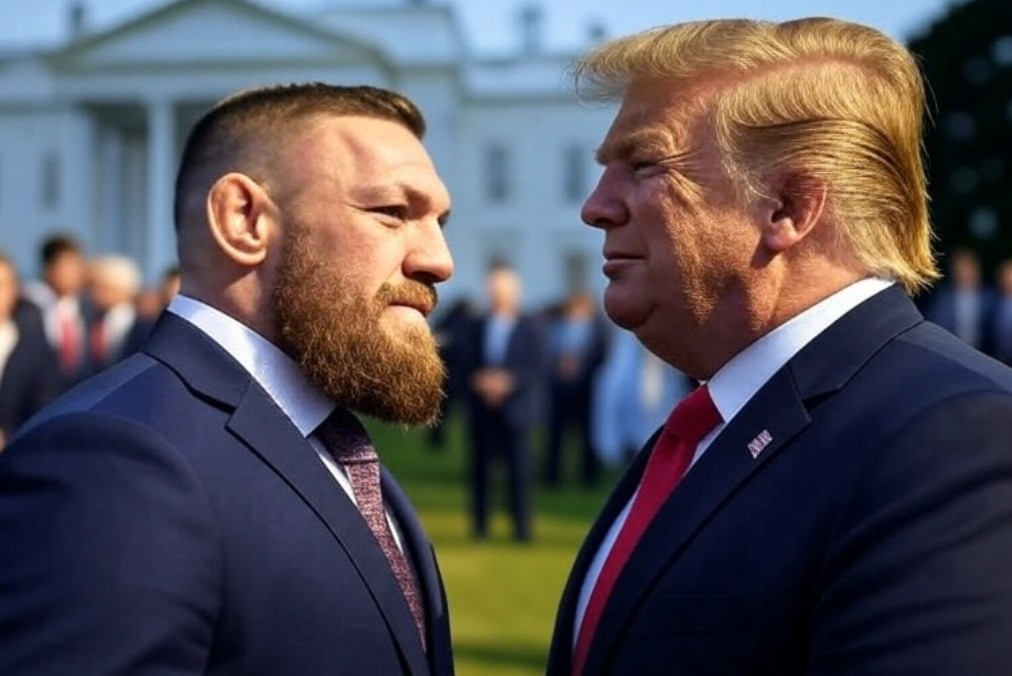Chael Sonnen, dubbed “The American Gangster,” is a figure who transcends the boundaries of mixed martial arts (MMA), weaving a narrative of cunning, charisma, and calculated controversy that turned him into one of the UFC’s most polarizing yet profitable stars.
Born on April 3, 1977, in the affluent suburbs of West Linn, Oregon, Sonnen’s journey from a decorated collegiate wrestler to a UFC icon is a testament to his ability to craft a persona that captivated millions.
Far from the gritty streets his nickname suggests, Sonnen’s genius lies in his mastery of self-promotion, his knack for playing the villainous “bad guy” to perfection, and his seamless transition into a media powerhouse outside the octagon. This analysis delves into how he leveraged his antagonistic role to become a pay-per-view (PPV) juggernaut and how his post-UFC career, particularly through his podcasting ventures, showcases a different facet of his intellectual prowess.
The Villainous Mastermind in the UFC
Sonnen’s rise in the UFC wasn’t fueled by a flawless record or a championship belt—his career tally stands at 31 wins and 17 losses, with no major titles to his name. Instead, it was his ability to step into the role of the ultimate villain that propelled him to stardom.
In a sport often dominated by stoic warriors or humble contenders, Sonnen embraced the heel, a character type borrowed from professional wrestling, with a flair that few could match. His trash-talking became legendary, a weapon as potent as his wrestling skills, which saw him land an astonishing 303 ground strikes against Anderson Silva in their first encounter at UFC 117 on August 7, 2010.The buildup to that fight exemplified Sonnen’s genius.
Facing Silva, the middleweight champion with an aura of invincibility, Sonnen didn’t just challenge him physically—he dismantled him verbally. With lines like claiming he’d drag Silva outside a hotel to beat him up or mocking Brazil’s economic woes, Sonnen turned a relatively overlooked bout into a cultural showdown. His brash confidence, delivered with a deadpan sincerity, drew ire from fans and media alike, but it also packed the MGM Grand Arena and drove PPV buys into the hundreds of thousands. Though he lost via a last-minute triangle choke, the near-upset—leading 4.5 rounds before the finish—only amplified his notoriety.
This pattern repeated at UFC 148 on July 7, 2012, for the rematch.
Sonnen’s pre-fight promos were a masterclass in provocation, painting himself as the brash American taking on the stoic Brazilian. He leaned into the “American Gangster” persona, spinning tales of a tough upbringing in West Linn—despite its suburban affluence—to contrast with Silva’s image.
The fight sold over 700,000 PPV buys, a testament to Sonnen’s ability to sell tickets through personality alone. Even in defeat, his performance kept him relevant, proving that the villain role wasn’t just a gimmick but a strategic play to keep his name in lights.
Sonnen’s villainy extended beyond Silva. His rivalry with Wanderlei Silva, marked by threats of home invasions and jabs at personal lives, built anticipation for their eventual Bellator clash in 2017. Against Tito Ortiz, he mocked the fighter’s ex-wife Jenna Jameson with a quip about using one’s mouth for profit, turning press conferences into must-watch theater.
These moments didn’t just entertain; they created narratives that boosted PPV numbers, with Sonnen’s fights often outdrawing those of less vocal contenders. His ability to absorb criticism—whether for PED suspensions or legal troubles—and spin it into more publicity showcased a psychological acumen rare in MMA.
The PPV Star Phenomenon
The financial success of Sonnen’s villain role is undeniable. In an era when PPV buys were a key metric of a fighter’s draw, Sonnen consistently punched above his competitive weight. His bouts with Silva weren’t just fights; they were events, drawing casual viewers lured by the drama. Estimates suggest UFC 117 generated around 600,000 buys, while UFC 148 pushed past 700,000, figures that rivaled top-tier stars like Brock Lesnar at the time.
This success stemmed from Sonnen’s ability to make every fight personal, turning opponents into foils in his ongoing saga.Unlike traditional stars who relied on knockouts or titles, Sonnen’s appeal lay in his unpredictability and willingness to say the unsayable. His promos, delivered with a wrestler’s cadence and a comedian’s timing, turned mundane press conferences into spectacles. He understood that MMA fans craved emotion—anger, amusement, or outrage—and delivered it in spades.
This emotional connection translated into PPV revenue, making him a rare fighter whose marketability outstripped his in-cage achievements. Even losses, like the TKO to Rashad Evans at UFC 167 in 2013, didn’t diminish his draw; they fueled the narrative of the underdog who kept coming back.
Genius Beyond the Octagon: The Podcasting Empire
Retirement from active fighting in 2019, after a loss to Lyoto Machida in Bellator, didn’t dim Sonnen’s star. Instead, he pivoted to media with a brilliance that rivals his UFC heyday. His podcasting career, starting with You’re Welcome! With Chael Sonnen and later co-hosting Good Guy / Bad Guy with Daniel Cormier, has established him as a voice of authority and entertainment in combat sports. Launched in 2018, these shows tap into his natural gift for storytelling and analysis, drawing millions of listens weekly.
Sonnen’s podcast success hinges on his unfiltered perspective. Where other analysts might hedge, he dives into hot takes—calling out Dana White’s decisions, dissecting fighter legacies, or predicting outcomes with a confidence that invites debate. His episode on Max Holloway’s win over Dustin Poirier at UFC 318 in 2025, for instance, offered a firsthand account from the crowd, blending personal anecdotes with sharp insights on Holloway’s BMF reign. This authenticity, paired with his humor—recounting tales of McGregor’s antics or Jones’ retirement—keeps listeners hooked.
The genius lies in his adaptability.
Sonnen doesn’t just recap fights; he creates a narrative arc, much like his UFC promos. His discussions on Jon Jones’ retirement in 2025, questioning its sincerity, sparked widespread conversation, boosting episode downloads. His solo show averages 50,000 listens per episode, while Good Guy / Bad Guy often exceeds 100,000, rivaling mainstream sports podcasts. Sponsorships from betting platforms and fitness brands reflect his commercial pull, a carryover from his PPV days.
Beyond numbers, Sonnen’s media work shows a strategic mind. He’s built a brand that thrives on controversy without the physical risk of fighting, leveraging his UFC villain persona into a likable rogue commentator. His creation of Submission Underground, a grappling promotion launched in 2016, further demonstrates entrepreneurial savvy, blending his wrestling roots with a new audience. This multifaceted success outside the UFC underscores a intellect that extends far beyond trash talk, cementing Sonnen as a cultural force in and out of the cage.
Chael Sonnen’s legacy as “The American Gangster” is a study in reinvention and resilience. Inside the UFC, he mastered the villain role, turning trash talk into a PPV goldmine and keeping fans invested through every loss and controversy. Outside the octagon, his podcasting and promotional ventures reveal a genius who adapts and thrives, using the same charisma to build a media empire. From the “mean streets” of West Linn to the airwaves of 2025, Sonnen’s journey proves that in the world of combat sports, the mind can be as mighty as the fist. His story isn’t just about fighting—it’s about mastering the art of the game, inside and out.


